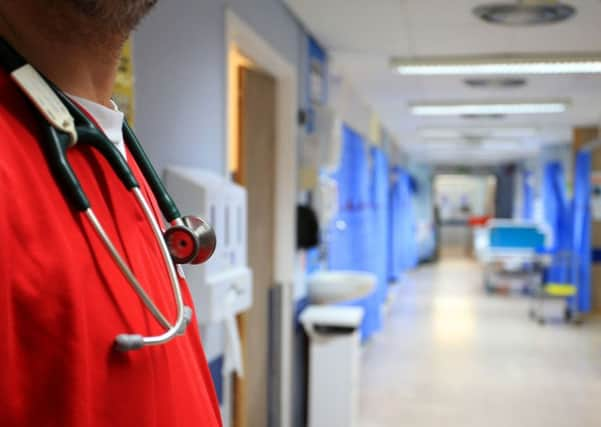Cancer nurses are being '˜run ragged' - but 92 new diagnoses for each one in Lancashire and Cumbria


Macmillan Cancer Support said there is a ‘startlingly broad variation’ in the number of specialist cancer nurses in some parts of England compared to how many new patients are being diagnosed.
It said numbers of new lung cancer cases each year per specialist nurses vary from 62 in 203 in different areas, while for breast cancer nurses they vary from 56 to 145.
Advertisement
Hide AdAdvertisement
Hide AdIn the NHS area of Lancashire and South Cumbria, there was just one job vacancy, with 128 of 129 roles filled, but each nurse was expected to care for dozens of patients.
While there were just 64 new blood cancer patients per specialist, at the other end of the scale there were 164 new urology cancer patients per specialist.
On average, there were around 92 new cancer patients per specialist nurse here – leading to the charity’s chief nursing officer, Dr Karen Roberts, to say: “Having the expertise and support of a specialist nurse from the point of diagnosis has a huge bearing on whether or not a cancer patient has a positive experience of the care they receive.
“We are concerned that cancer nurses are being run ragged, and that some patients may not be receiving the level of specialist care they need.
Advertisement
Hide AdAdvertisement
Hide Ad“Nurses working in cancer care tell us that their increasingly complex and pressured workload is beginning to affect the quality of care patients receive.
“It is no surprise that hospitals are struggling to recruit to these roles, given this unprecedented pressure.”
Ann McMahon, research and innovation manager at the Royal College of Nursing, said it was no exaggeration to say the shortage of nurses is ‘putting patients’ lives at risk’.
“For patients diagnosed with cancer, any delay can lead to worse outcomes, and it is difficult to overstate the distress felt by patients and their families as they wait to begin the treatments lives can depend on,” she added.
Advertisement
Hide AdAdvertisement
Hide AdConservative MP for Blackpool North and Cleveleys, Paul Maynard, said: “Cancer provision on the Fylde is always a matter of concern for local residents.
“Whilst I am sure many will take comfort in the positive news around vacancies, I am sure people will want reassurances that the nursing staff are apportioned to the areas with the greatest clinical intensity.
“Not every cancer is the same, and new diagnoses will always vary in treatment approaches.
“Staffing decisions need to be consistent with clinical need, and we can never take for granted staffing levels.
“Those working in this field are working incredibly hard and delivering a high level of care, and they deserve our collective gratitude.”